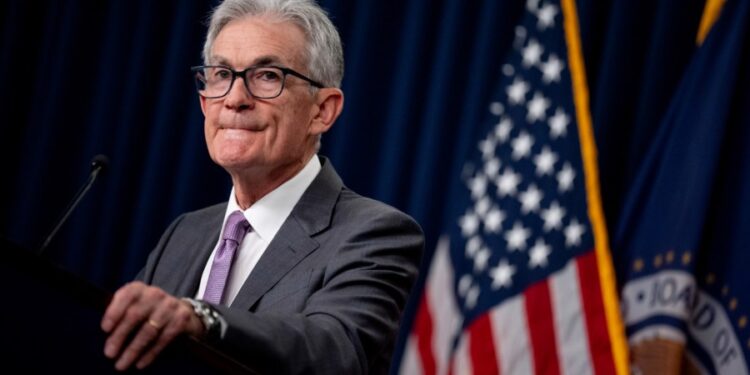
Three prominent Democrats urged Federal Reserve Chair Jerome Powell on Monday to cut interest rates by 75 basis points, warning the central bank may have already delayed too long.
The central bank is poised to announce rate cuts Wednesday after more than a year at the two-decade-high range of 5.25 to 5.5 percent.
While Powell signaled in December that rate cuts were on the horizon, sticky inflation this spring delayed his timeline for rate cuts as the Fed waited and watched for inflation to continue to fall.
Inflation clocked in at 2.5 percent in August, even lower than anticipated and a far cry from its 9.1 percent peak in June 2022.
“It is clearly the time for the Fed to cut rates. In fact, it may be too late: your delays have threatened the economy and left the Fed behind the curve,” Sens. Elizabeth Warren (D-Mass.), Sheldon Whitehouse (D-R.I.) and John Hickenlooper (D-Colo.) wrote in a letter to Powell.
The unemployment rate has also inched up from 3.5 percent in July 2023 to 4.2 percent in August, although it remains low by historical standards.
“Employment numbers adjust slowly, so the Fed should frontload rate cuts to avoid sliding towards a potential crisis,” the lawmakers wrote.
A 75 basis point cut is highly unlikely, although the lawmakers point out that a rate of 4.5 to 4.75 percent would still be higher than it was at any point between November 2007 and January 2023 if they did.
A majority of interest rate traders are forecasting a 50 basis point cut, according to the CME FedWatch tool.
Some Democrats including Warren have pressed Powell to cut rates for months, citing the burden of high borrowing costs on Americans and a negative impact on housing affordability.
On the other end of the political spectrum, former President Trump has accused the lifelong Republican he appointed in 2017 of being “political” and suggested Powell would cut rates ahead of the November election to help the Democratic Party.
But the Fed is a politically independent agency, and Powell has said repeatedly that the central bank would base its decision to cut interest rates on data and disregard policy.






